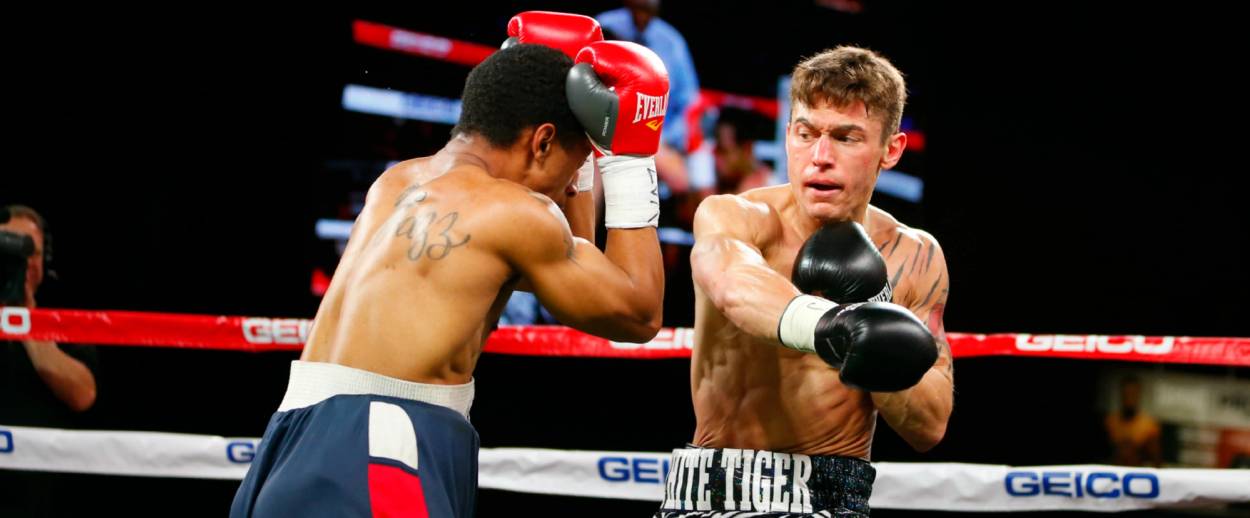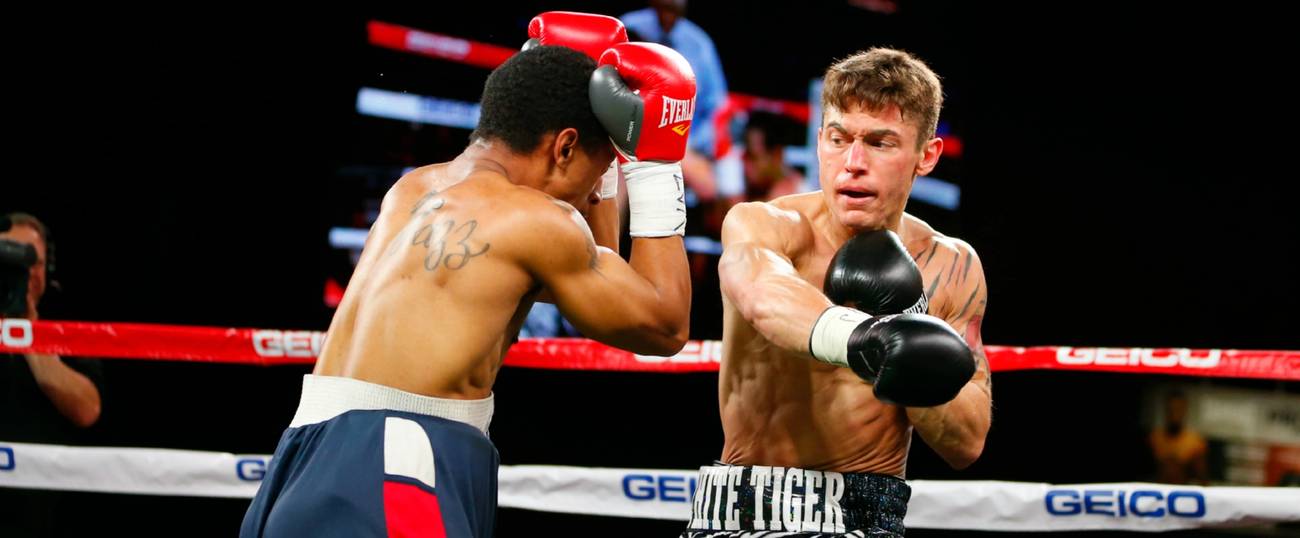Boxing With a Full Tank of Inspiration
Dustin Fleischer, the grandson of a Holocaust survivor, enters the ring in Brooklyn on Saturday night




[Update: Fleischer scored a first-round TKO over Karim Miller, upping his perfect professional record to 2-0. Watch a video of the fight here.]
On Saturday night at Barclays Center, Dustin “The White Tiger” Fleischer will walk to the boxing ring with a Chai pendant around his neck; it belonged to his grandfather, a Holocaust survivor.
“It gives me a lot of confidence,” Fleischer, a Welterweight, told me the day before his weigh-in for only his second pro fight.
“My grandfather was in more than one camp. He tried to escape from [one of them]. It was really cold. [Nazi] soldiers caught him in a barn. They shot him three times then went to finish him off—and the gun froze. It was an act of god, you know? They figured he was going to die anyway, so left him there to bleed to death. He survived and he became part of the Jewish resistance.”
Fleischer, 25, said his grandfather’s experience brings him a strength so solid that he feels he can beat any opponent. It’s hard to argue otherwise: Fleischer amassed a 112-18 record as an amateur before he ever had a professional bout.
Fleischer began studying martial arts at the age of 5. By the time he was 9 years old he took up boxing in the tradition of his father Phil, a former professional pugilist himself. At ten years old, he had his first bout at Dukers’ Gym in Newark, and won. By the age of 15, and weighing in at 125 lbs., Fleischer, who hails from New Jersey, and trains at Gleason’s Gym on the Jersey Shore, became one of the top boxers in the country.
Soon enough, he won the Olympics box-offs, making him one of 8 to qualify for a place on the 2008 Olympics squad. But he got mono, and stepped down.
“Someone was saving something bigger for me,” Fleischer said.
It would take further patience and maturity to get there. The financial crisis of 2008 hurt his father’s trucking business, so Fleischer decided to give competitive boxing a rest in order to work in the family business, which had fallen on hard times. He also enrolled in college and stayed in the gym as a sparring partner.
In 2010, a tragedy struck the family of one of his father’s employees: Karen LeGrand’s son, Eric, a member of the Rutgers football team, became paralyzed in an on-field collision. So when she left work to take care of her son, Fleischer stepped in manage the warehouse.
“She worked for my father for 23 years,” he said. “She taught me a lot about the transportation industry.”
Since then, LeGrand has become a one of the most recognizable voices in support of spinal cord injury research in the U.S., serving as a motivational speaker and radio announcer. LeGrand also has his own foundation, Team LeGrand, which works in conjunction with the Christopher and Dana Reeve Foundation.
On Saturday, Fleischer will walk to the run with LeGrand by his side. “I find a lot of strength and inspiration from Eric.”
Fleischer’s bout is on the Cotto-Geale undercard, so I asked him who he liked in the marquee fight. “I like Cotto,” he said.
“And in your fight?” I asked him.
He laughed. “That’s me, man.”
Check out a video of Fleischer getting a TKO in his first pro debut on January 9 at Madison Square Garden.
Related: Jewish Megafights We Want To See
Bert Sugar, Legendary Boxing Writer, Dies
Boxing Tactics, With Yuri Foreman
Foreman Pounded in Embarassing Loss
Alternatives to Supporting Floyd Mayweather, a Serial Abuser of Women
Punchy
Jonathan Zalman is a writer and teacher based in Brooklyn.